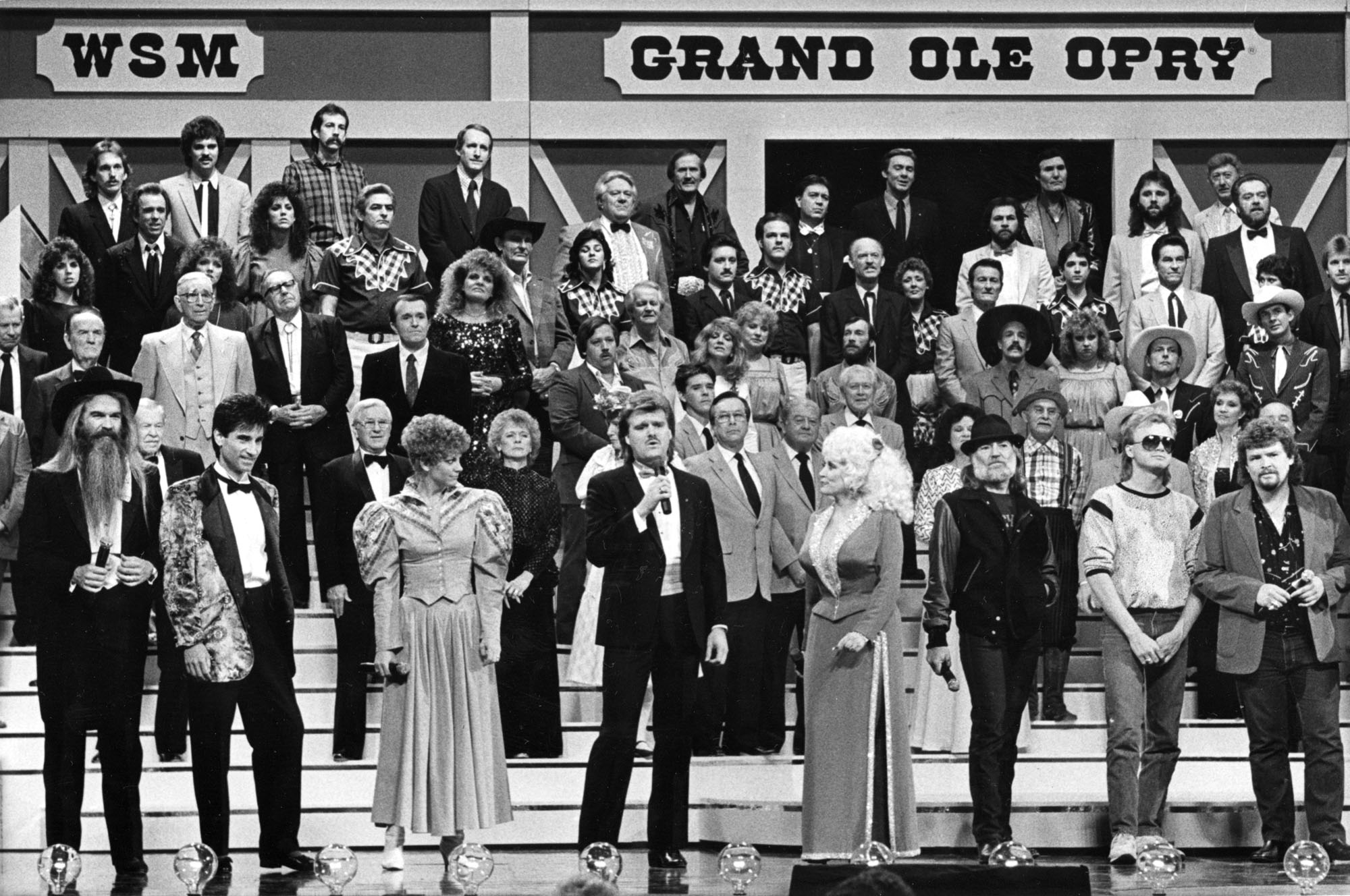Ken Burns’ ‘Country Music’ Highlights The Intersectionality Of The American Genre

Country music stars perform on the stage of the Grand Ole Opry house in Nashville, Tenn. in November 1985 for the 60th anniversary of the Opry. This fall, filmmaker Ken Burns will examine the history of the genre in an eight-part documentary.
Mark Humphrey / Associated Press, file
How would you describe country music? This question could elicit a long answer, but filmmaker Ken Burns hopes to sum it up in his latest eight-part documentary “Country Music.”
The film will chronicle the history and evolution of this American art form. Lois Reitzes spoke with lead producer and writer Dayton Duncan and producer Julie Dunfey. The documentary begins in the 1920s and goes through the mid-1990s.
The Carter Family began recording their music in 1927 and are considered to be the first country music stars. Sara and Maybelle Carter played guitar in the group and their gospel, bluegrass style of music influenced many musicians to come. Addressing race was also important to the producers when discussing the history of country music.
“The thing about DeFord Bailey, Ray Charles, and Charley Pride, the two or three black people who were known in country music, they were accepted,” Virtuoso trumpeter Wynton Marsalis says in the documentary. “The musicians accepted them in a time when a culture did not accept them.”
Duncan believes artists and music are always mixing and borrowing from other genres in order to make it their own art, and that includes country music. The appeal of country music reached legendary artist Ray Charles, who viewed this as the best genre for storytelling.
“That’s what we do in America. That’s why we think country music is a great reflection on us and to study us,” he said. “It is all about the mix [of music genres].”
Country music also gave a platform for female musicians to tell their own stories of empowerment. Loretta Lynn was among the first female country music stars who used music to make powerful statements, such as “The Pill” and “Don’t Come Home A’ Drinkin’ (With Lovin’ on Your Mind).”
“She didn’t considered herself apart of a movement, but she said ‘If you talk about your life and the real things going on, then that’s country,’” Duncan said.
The documentary will premiere on Sunday, September 15 on ATL PBA.





